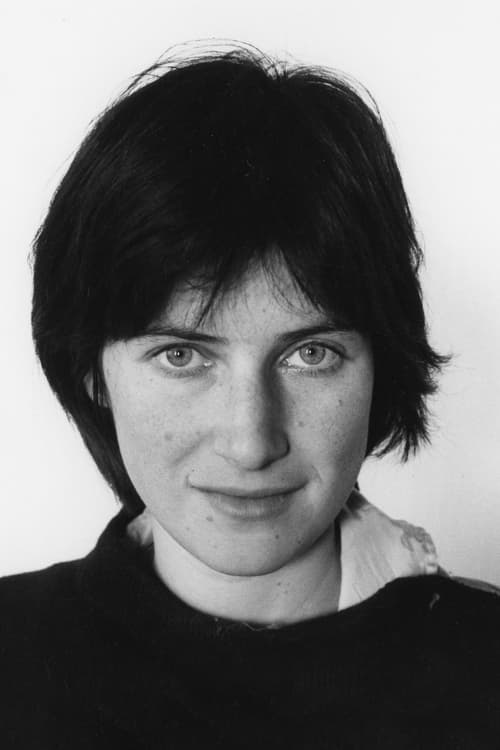
Director
Filmed as part of Akerman’s film school entrance exam, these raw and playful 8mm miniatures capture life at a Brussels fairground and the courtyard of a hotel, alongside an oblique, two-part fiction set in the seaside shops of Knokke.

Self
Going through my mini DVs shot over the past decade, I rediscovered a forgotten night sequence of Chantal Akerman and Sonia Wieder-Atherton leaving a brasserie where we had dined together in Montparnasse. The excerpt stayed with me for a while. This prompted me to focus on Chantal’s sound work in her films and her very close collaboration with cellist, Sonia Wieder-Atherton with whom she made more than 20 films. And, since New York, Paris and Moscow were places the three of us had in common, I intertwined some of my images with hers.
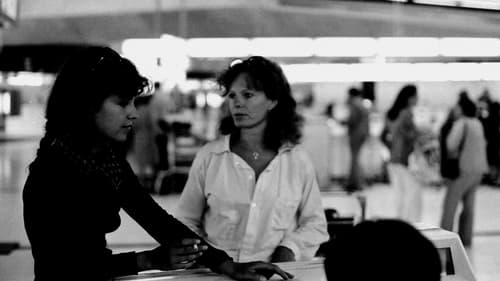
Self (archive footage)
In the 70s, actress Delphine Seyrig and director Carole Roussopoulos, both militant feminists, were the pioneers of video activism in France. They documented the demonstrations of French feminists and used the new technologies to counter the poor representation of women in the public media.

Explores some of the most innovative attempts by contemporary artists, filmmakers, architects etc to explore multiple Temporalities and to counter the uniform sense of time promoted by our technology-driven society.
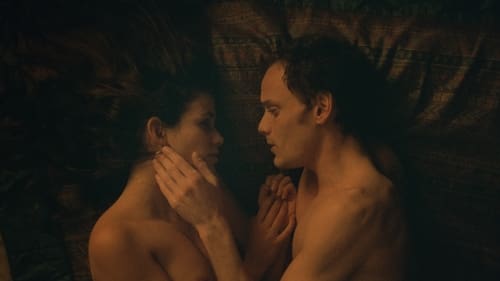
(voice)
Jake and Mati are two outsiders in the northerly Portuguese city of Porto who once experienced a brief connection. A mystery remains about the moments they shared, and in searching through memories, they relive the depths of a night uninhibited by the consequences of time.

I Don’t Belong Anywhere - Le Cinéma de Chantal Akerman, explores some of the Belgian filmmaker’s 40 plus films. From Brussels to Tel-Aviv, from Paris to New-York, this documentary charts the sites of her peregrinations. An experimental filmmaker, a nomad, Chantal Akerman shares her cinematic trajectory, one that has never ceased to interrogate the the meaning of her existence. Thanks in great part to the interventions of her editor, Claire Atherton, she delineates the origins of her film language and her aesthetic stance.
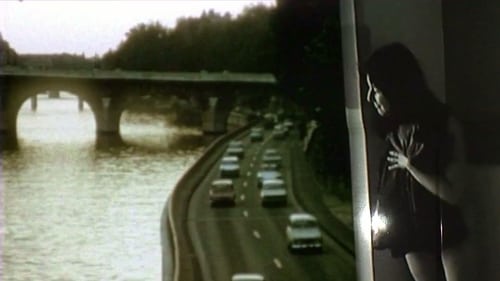
Self
A new short film by Vivian Ostrovsky remembering Chantal Akerman, beginning with their first meeting in the early 1970s. Using her own footage of Chantal Akerman, the filmmaker remembers a few moments that illustrate Chantal's personality. Forty years of friendship condensed into four minutes...
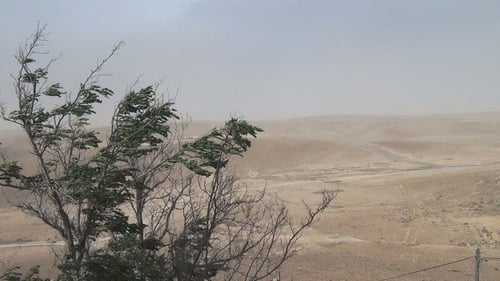
Sound
Documentary about humans dealing with changing technology, the basic concepts of communication, cinema, and Akerman's mother, seen in her Brussels apartment.

Producer
Documentary about humans dealing with changing technology, the basic concepts of communication, cinema, and Akerman's mother, seen in her Brussels apartment.

Director of Photography
Documentary about humans dealing with changing technology, the basic concepts of communication, cinema, and Akerman's mother, seen in her Brussels apartment.

Self
Documentary about humans dealing with changing technology, the basic concepts of communication, cinema, and Akerman's mother, seen in her Brussels apartment.

Writer
Documentary about humans dealing with changing technology, the basic concepts of communication, cinema, and Akerman's mother, seen in her Brussels apartment.

Director
Documentary about humans dealing with changing technology, the basic concepts of communication, cinema, and Akerman's mother, seen in her Brussels apartment.

Narrator(voice)
What Lies Beneath the Sky is a portrait of New York City hit by hurricane Sandy shot in Super 8.
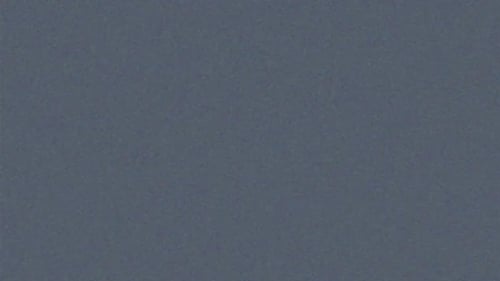
Self
Interview with the Belgian director discussing her films from the 1970s and her mother’s influence on her work.
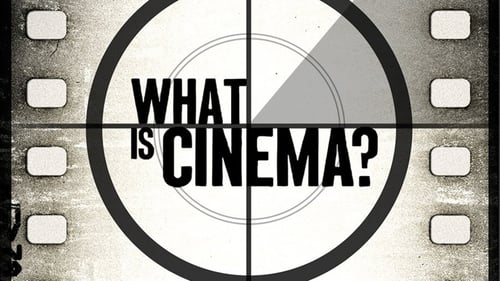
Self
Using the words and ideas of great filmmakers, from archival interviews with Alfred Hitchcock and Robert Bresson to new interviews with Mike Leigh, David Lynch, and Jonas Mekas, Oscar-winning filmmaker Chuck Workman shows what these filmmakers and others do that can't be expressed in words - but only in cinema.
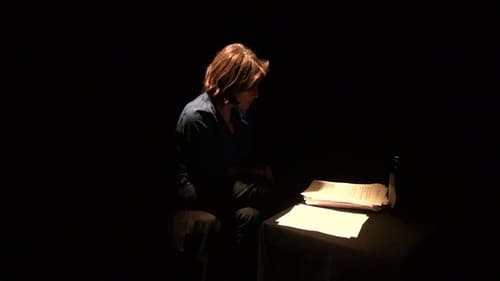
“My mother laughs prelude” is a performance from the book that Chantal made about her mother. In 2013, Akerman’s mother was dying. She flew back from New York to Brussels to care for her, and between dressing her, feeding her and putting her to bed, she wrote. She wrote about her childhood, the escape her mother made from Auschwitz but didn’t talk about, the difficulty of loving her girlfriend, C., her fear of what she would do when her mother did die. Among these imperfectly perfect fragments of writing about her life, she placed stills from her films. "My Mother Laughs" is both the distillation of the themes Akerman pursued throughout her creative life, and a version of the simplest and most complicated love story of all: that between a mother and a daughter.

Director
“My mother laughs prelude” is a performance from the book that Chantal made about her mother. In 2013, Akerman’s mother was dying. She flew back from New York to Brussels to care for her, and between dressing her, feeding her and putting her to bed, she wrote. She wrote about her childhood, the escape her mother made from Auschwitz but didn’t talk about, the difficulty of loving her girlfriend, C., her fear of what she would do when her mother did die. Among these imperfectly perfect fragments of writing about her life, she placed stills from her films. "My Mother Laughs" is both the distillation of the themes Akerman pursued throughout her creative life, and a version of the simplest and most complicated love story of all: that between a mother and a daughter.

Writer
A tale of an occidental merchant, Kaspar Almayer, whose dreams of riches for his beloved daughter, Nina, collapse under the weight of his own greed and prejudice.

Producer
A tale of an occidental merchant, Kaspar Almayer, whose dreams of riches for his beloved daughter, Nina, collapse under the weight of his own greed and prejudice.

Director
A tale of an occidental merchant, Kaspar Almayer, whose dreams of riches for his beloved daughter, Nina, collapse under the weight of his own greed and prejudice.

Self
Filmmaker José Luis Guerin documents his experience during a year of traveling as a guest of film festivals to present his previous film. What emerges is a wonderfully humane and sincere portrayal of the people that he meets when he goes off the beaten track in some of the world's major cities.

Self
Invented by the post-New Wave, the exercise is well-known: put a filmmaker in the frame, make him talk about his career, evoke his admirations, rummage in his methods, and add words to silences, spoken images to seen images. It’s always very instructive. As is the case here too. Chantal Akerman, passing through South America, talks about herself for an hour, and it’s fascinating. Even if her recalling of the relationship between the cinema and time makes up only a few rare minutes.

Self
The Midnight Sun Film Festival is held every June in the Finnish village of Sodankylä beyond the arctic circle — where the sun never sets. Founded by Aki and Mika Kaurismäki along with Anssi Mänttäri and Peter von Bagh in 1985, the festival has played host to an international who’s who of directors and each day begins with a two-hour discussion. To mark the festival’s silver anniversary, festival director Peter von Bagh edited together highlights from these dialogues to create an epic four-part choral history of cinema drawn from the anecdotes, insights, and wisdom of his all-star cast: Coppola, Fuller, Forman, Chabrol, Corman, Demy, Kieslowski, Kiarostami, Varda, Oliveira, Erice, Rouch, Gilliam, Jancso — and 64 more. Ranging across innumerable topics (war, censorship, movie stars, formative influences, America, neorealism) these voices, many now passed away, engage in a personal dialogue across the years that’s by turns charming, profound, hilarious and moving.

Co-Director
Call for the regularization by the French government of all undocumented workers living in the country, a short film co-directed by 320 filmmakers and directors, producers, distributors and cinema owners.

Director
Presented in 2 parts, this 83 minute piece documents Wieder-Atherton's idea to do a set of pieces from across central and eastern Europe, including Russia. Some weren't originally written for cello, but she had them transcribed. Some were songs for voices, which goes with Wieder-Atherton saying in an earlier film she made with Chantal Akerman that she aspires to play the cello in a way that it carries the specificity of emotion of the human voice. She explains at the beginning of both parts how she feels each country in the region has it's own personality expressed in its music, coming from its individual history and culture, but that each land in the area is also 'impregnated' as she puts it, by the others, so there are certain elements that run throughout.

Editor
Maniac Summer consists of images and sounds recorded in Paris in the summer of 2009. It is a sprawling triptych without a beginning or end and with no specific subject or topic. The camera is positioned in front of a window and left running. It observes movements, registers noises coming from the street or nearby park, captures Chantal Akerman going about her business in her apartment: smoking, working, talking on the telephone. Fragments from the artist’s everyday life are featured in the installation’s central video, while the adjoining panels are more symbolically charged; in them, various images from the former have been isolated, modified and repeated. These abstract afterimages act as a kind of memory, looking back to the images in the installation’s centrepiece as so many shadows of its reality.

Cinematography
Maniac Summer consists of images and sounds recorded in Paris in the summer of 2009. It is a sprawling triptych without a beginning or end and with no specific subject or topic. The camera is positioned in front of a window and left running. It observes movements, registers noises coming from the street or nearby park, captures Chantal Akerman going about her business in her apartment: smoking, working, talking on the telephone. Fragments from the artist’s everyday life are featured in the installation’s central video, while the adjoining panels are more symbolically charged; in them, various images from the former have been isolated, modified and repeated. These abstract afterimages act as a kind of memory, looking back to the images in the installation’s centrepiece as so many shadows of its reality.

Director
Maniac Summer consists of images and sounds recorded in Paris in the summer of 2009. It is a sprawling triptych without a beginning or end and with no specific subject or topic. The camera is positioned in front of a window and left running. It observes movements, registers noises coming from the street or nearby park, captures Chantal Akerman going about her business in her apartment: smoking, working, talking on the telephone. Fragments from the artist’s everyday life are featured in the installation’s central video, while the adjoining panels are more symbolically charged; in them, various images from the former have been isolated, modified and repeated. These abstract afterimages act as a kind of memory, looking back to the images in the installation’s centrepiece as so many shadows of its reality.

Maniac Summer consists of images and sounds recorded in Paris in the summer of 2009. It is a sprawling triptych without a beginning or end and with no specific subject or topic. The camera is positioned in front of a window and left running. It observes movements, registers noises coming from the street or nearby park, captures Chantal Akerman going about her business in her apartment: smoking, working, talking on the telephone. Fragments from the artist’s everyday life are featured in the installation’s central video, while the adjoining panels are more symbolically charged; in them, various images from the former have been isolated, modified and repeated. These abstract afterimages act as a kind of memory, looking back to the images in the installation’s centrepiece as so many shadows of its reality.

Director
Femmes d’Anvers en novembre is a dual projection piece rich in atmosphere and charm, filled with references to early French and American film noir – a deliberate homage, shot in close-up and medium close-up, to the smoking woman. The focus on the everyday activities of women (the core trope of Akerman’s masterpiece Jeanne Dielman) is a recurring theme in much of her work; Femmes d'Anvers signals a return to this motif. In it, Akerman tackles the thorny question of a person’s fundamental freedom to choose what to do with his or her body.

Director
A young woman stands in front of a mirror and submits herself to self-scrutiny, naming body parts, evaluating body parts and making some critical assessment of herself. There is repetition and circularity in the naming and wording.

Director
An omnibus project examining, well, the state of the world.

Director
Tombée de nuit sur Shanghaï is Akerman’s contribution to the collective film L’état du monde (2007). Consists of little more than long-held vid shots of Shanghai skyscrapers and a floating boat, bearing giant video displays of consumer products and familiar images such as Da Vinci’s « La Giaconda.

Director
In this 2007 interview, an off-camera Chantal Akerman interviews her mother about her films. The producers of the interview originally intended to edit out Akerman’s questions but ultimately decided to keep them in to preserve the candor of the mother-daughter rapport.

Self
In this 2007 interview, an off-camera Chantal Akerman interviews her mother about her films. The producers of the interview originally intended to edit out Akerman’s questions but ultimately decided to keep them in to preserve the candor of the mother-daughter rapport.

Director
"Aurore, my friend, Aurore, the main actress of Rendez-vous d'Anna and other films of mine, our meeting, the why and how of our joint work". – Chantal Akerman

Self
"Aurore, my friend, Aurore, the main actress of Rendez-vous d'Anna and other films of mine, our meeting, the why and how of our joint work". – Chantal Akerman

Self (voice)
Akerman spends a brief period on her own in an apartment by the sea in Tel Aviv. She films from the apartment and in her narration she talks about her family, her Jewish identity and her childhood. She wonders whether normal everyday life is possible in this place and whether filming is a realistic option.

Cinematography
Akerman spends a brief period on her own in an apartment by the sea in Tel Aviv. She films from the apartment and in her narration she talks about her family, her Jewish identity and her childhood. She wonders whether normal everyday life is possible in this place and whether filming is a realistic option.

Writer
Akerman spends a brief period on her own in an apartment by the sea in Tel Aviv. She films from the apartment and in her narration she talks about her family, her Jewish identity and her childhood. She wonders whether normal everyday life is possible in this place and whether filming is a realistic option.

Director
Akerman spends a brief period on her own in an apartment by the sea in Tel Aviv. She films from the apartment and in her narration she talks about her family, her Jewish identity and her childhood. She wonders whether normal everyday life is possible in this place and whether filming is a realistic option.
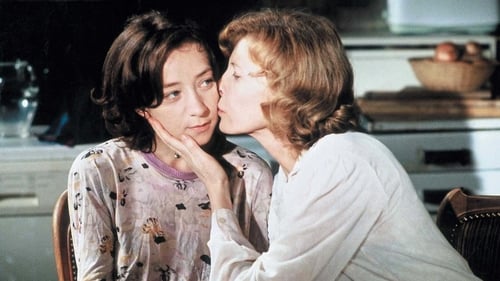
Writer
When her mother moves in, the life of a writer gets crowded.

Director
When her mother moves in, the life of a writer gets crowded.

Director
"To begin with, we have Babette Mangolte, the camera technician on Hotel Monterey, La Chambre and Jeanne Dielman, but who for me also symbolises the New York years, she introduced me into the very core of what was new, even revolutionary, in New York, and our interview is about the city of New York in the early 70s." – Chantal Akerman

Self
"To begin with, we have Babette Mangolte, the camera technician on Hotel Monterey, La Chambre and Jeanne Dielman, but who for me also symbolises the New York years, she introduced me into the very core of what was new, even revolutionary, in New York, and our interview is about the city of New York in the early 70s." – Chantal Akerman

Director
The short documentary starts with Wieder-Atherton telling the story of how she came to fall in love; first with music in general, and then with the cello, and goes on tell how she found her specific style, using the music to try and almost form words of communication. It's a delightful and enlightening interview. This is followed by Wieder-Atherton playing 6 short pieces of quite different styles, from the heartbreaking melodies of Schubert and Brahms to Berio's more edgy modern sounds.

Director of Photography
A documentary look at the fate of Mexicans who cross the border into the United States.

Writer
A documentary look at the fate of Mexicans who cross the border into the United States.

Director
A documentary look at the fate of Mexicans who cross the border into the United States.

Director
Made out of the last sequence of the film Jeanne Dielman, 23 quai du Commerce, 1080 Bruxelles (1975). Seven monitors (in sync) video installation, color, sound
. The monitors are placed on pedestals and displayed in a circle
.
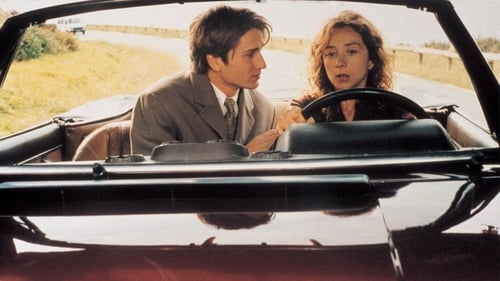
Writer
Arian lives in Simon's large parisian appartment. He wants to know everything from her, follows her, has her accompanied for her trips and constantly interrogates her. Knowing her taste for women and her double life only exacerbates his suffering, his helplessness and his desire for her.

Director
Arian lives in Simon's large parisian appartment. He wants to know everything from her, follows her, has her accompanied for her trips and constantly interrogates her. Knowing her taste for women and her double life only exacerbates his suffering, his helplessness and his desire for her.

Writer
Chantal Akerman investigates the American Deep South through the story of a lynching and grisly murder of an African-American man that took place in Texas in 1998.

Director
Chantal Akerman investigates the American Deep South through the story of a lynching and grisly murder of an African-American man that took place in Texas in 1998.
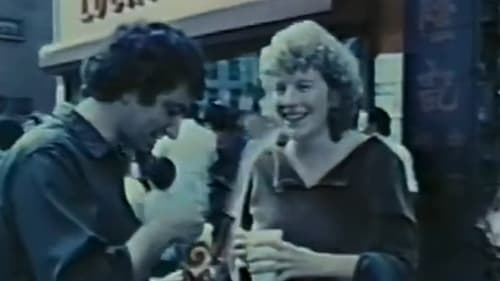
Self
Filmmaker Jonas Mekas films 160 underground film people over four decades.

Self
Janine Bazin and André Labarthe approached Chantal Akerman about making a film for the series; eagerly, Akerman proposed a number of filmmakers—but all had already been done. So she suggested…“How about me?” Akerman creates a fascinating self-portrait that takes us through her career, aided by critics Emmanuel Burdeau and Jean Narboni and filmmaker Luc Moullet.

Director
Janine Bazin and André Labarthe approached Chantal Akerman about making a film for the series; eagerly, Akerman proposed a number of filmmakers—but all had already been done. So she suggested…“How about me?” Akerman creates a fascinating self-portrait that takes us through her career, aided by critics Emmanuel Burdeau and Jean Narboni and filmmaker Luc Moullet.

Writer
Chantal Akerman reads a script detailing the woes that befell her on the day she thought about "The Future of Cinema". The camera continuously rotates 360 degrees around her apartment as she rereads the script at an exponentially increasing speed. At its heart, an homage to Godard.

Director
Chantal Akerman reads a script detailing the woes that befell her on the day she thought about "The Future of Cinema". The camera continuously rotates 360 degrees around her apartment as she rereads the script at an exponentially increasing speed. At its heart, an homage to Godard.

Self
Chantal Akerman reads a script detailing the woes that befell her on the day she thought about "The Future of Cinema". The camera continuously rotates 360 degrees around her apartment as she rereads the script at an exponentially increasing speed. At its heart, an homage to Godard.
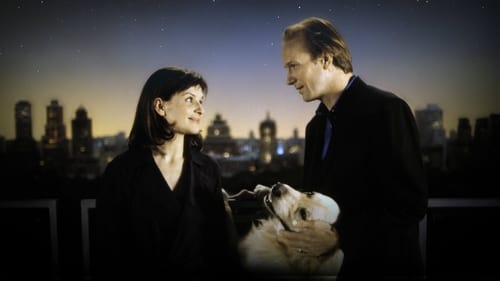
Dialogue
Dr. Henry Harriston is a successful psychoanalyst in New York City. When he is near a nervous breakdown, he arranges to change his flat with Beatrice Saulnier from France for a while. Both don't know each other and both find themselves deeply involved into the social settings of the other, because the decision to change their flats is made overnight. Could be the perfect amusement, but suddenly Henry finds himself beaten up by Beatrice' lover and Beatrice is considered to be Dr. Harriston's substitute by his clients...

Screenplay
Dr. Henry Harriston is a successful psychoanalyst in New York City. When he is near a nervous breakdown, he arranges to change his flat with Beatrice Saulnier from France for a while. Both don't know each other and both find themselves deeply involved into the social settings of the other, because the decision to change their flats is made overnight. Could be the perfect amusement, but suddenly Henry finds himself beaten up by Beatrice' lover and Beatrice is considered to be Dr. Harriston's substitute by his clients...

Director
Dr. Henry Harriston is a successful psychoanalyst in New York City. When he is near a nervous breakdown, he arranges to change his flat with Beatrice Saulnier from France for a while. Both don't know each other and both find themselves deeply involved into the social settings of the other, because the decision to change their flats is made overnight. Could be the perfect amusement, but suddenly Henry finds himself beaten up by Beatrice' lover and Beatrice is considered to be Dr. Harriston's substitute by his clients...
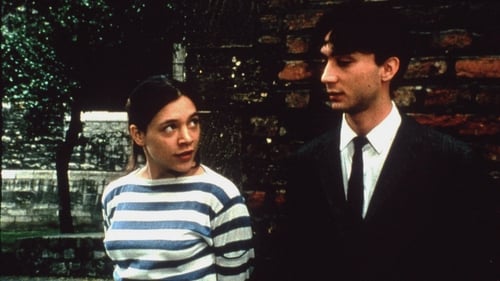
Writer
The main character, Michele, spends the hour discussing her views of life with some old and new friends, and tries to understand her own feelings about her place in the world and her sexuality, while a camera follows along at close range.

Director
The main character, Michele, spends the hour discussing her views of life with some old and new friends, and tries to understand her own feelings about her place in the world and her sexuality, while a camera follows along at close range.
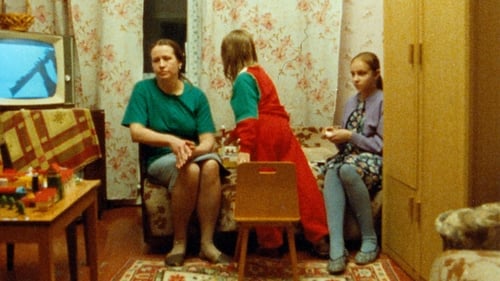
Writer
Chantal Akerman has toured Eastern Europe through Russia, Poland, Ukraine filming everything that moved her : faces, streets, cars, buses, stations, landscapes, interiors, queues, doors, windows, meals. Women and men, young and old passing or stopping, seated or standing. Days and nights, rain, snow and wind, winter and spring.

Director
Chantal Akerman has toured Eastern Europe through Russia, Poland, Ukraine filming everything that moved her : faces, streets, cars, buses, stations, landscapes, interiors, queues, doors, windows, meals. Women and men, young and old passing or stopping, seated or standing. Days and nights, rain, snow and wind, winter and spring.

Writer
"A man stands amid unpacked boxes in his new home, delivering an extended monologue on indecision and dislocation. This rarely seen, overlooked gem created by Akerman for television explores the quotidian crises and profound feelings of alienation that run through her work." - BAM

Director
"A man stands amid unpacked boxes in his new home, delivering an extended monologue on indecision and dislocation. This rarely seen, overlooked gem created by Akerman for television explores the quotidian crises and profound feelings of alienation that run through her work." - BAM

Director
Contre l'Oubli (Against Oblivion) is a compilation of 30 French filmmakers, Alain Resnais and Jean Luc Godard among them, who use film to make a plea on behalf of a political prisoner. Jean Luc Godard and Anne Marie Mieville's film concerns the plight of Thomas Wanggai, West Papuan activist who has since died in prison. The short films were commissioned by Amnesty International.
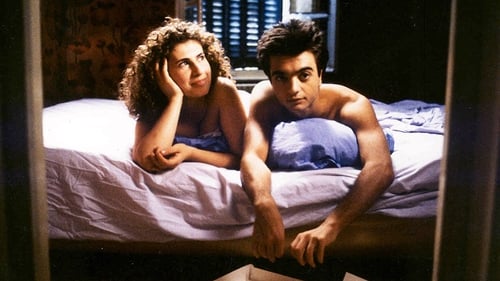
Writer
Jack and Julie live in a bare flat in Paris. At night, Jack drives a taxi while Julie wanders around the city, and in the day they make love. One day Julie meets Joseph, the daytime driver of the taxi, and soon Julie is spending her nights with Joseph and her days with Jack.

Director
Jack and Julie live in a bare flat in Paris. At night, Jack drives a taxi while Julie wanders around the city, and in the day they make love. One day Julie meets Joseph, the daytime driver of the taxi, and soon Julie is spending her nights with Joseph and her days with Jack.

Director
Commissioned by Amnesty International for its TV program Ecrire contre l’oubli (Write Against Oblivion), Akerman’s contribution in the form of a poem is dedicated to Febe Elisabeth Velasquez, an El Salvadorian trade unionist and mother of three, murdered by the US-backed junta. Deneuve emerges from the calm of a Parisian night to deliver a heartfelt plea for remembrance of Febe Elisabeth’s too short life. Sonia Wieder-Atherton’s cello weeps appropriately.

Director
Belgian director Chantal Akerman avoids her usual "real time" technique in Histoires d'Amérique. The anecdotal nature of the subject matter compels Akerman to fragment her narrative, rather than offer it in one, uninterrupted continuum. Still, another Akerman trademark -- permitting the "drama" to emanate from the actors rather than the situations -- is very much in evidence. This informal history of Jewish life over the past 100 years is related in a series of eyewitness accounts, re-created by a group of largely unknown actors. Also known as American Stories, the Belgian/French Histoires d'Amérique began building an audience when it was shown at the Berlin Film Festival.

Self (uncredited)
Chantal Akerman followed famous Choreographer Pina Bausch and her company of dancers, The Tanzteater Wuppertal, for five weeks while they were on tour in Germany, Italy and France. Her objective was to capture Pina Bausch's unparalleled art not only on stage by behind the scenes.

Director
Chantal Akerman followed famous Choreographer Pina Bausch and her company of dancers, The Tanzteater Wuppertal, for five weeks while they were on tour in Germany, Italy and France. Her objective was to capture Pina Bausch's unparalleled art not only on stage by behind the scenes.

Director
Alfred Brendel, one of the greatest of all pianists, plays and reflects on Franz Schubert’s last three piano sonatas. As he points out, Schubert can’t have known that he was soon to die, so they probably do not embody the air of resignation and finality future generations have sentimentally insisted they bear. They were however long neglected, all but forgotten, and only in more recent times have they come to be treasured and performed. The repose and wisdom of the maestro, together with the patient observation of one who is no stranger to the idea of the irrevocably lost, of the erasures of history, and of the value of fragile objects passed carefully from generation to generation, is a joy.
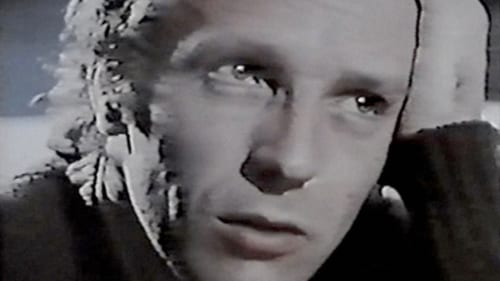
Self
Philippe Garrel’s documentary on France’s second wave of masterful filmmakers. Featuring Jean Eustache, Chantal Akerman, André Téchiné, Leos Carax, Jacques Doillon and Benoit Jacquot.

Director
Far from Standardised visual recording, Akerman and her accomplice, the cellist Sonia Wieder-Atherton allows us to discover a fine moment of contemporary music.
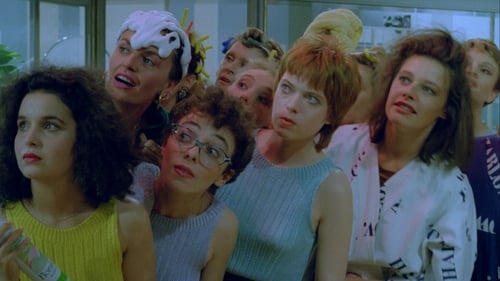
Writer
Three young women at a hair salon all like the son of the clothing store proprietors across the mall. Although Robby is selfish and shallow, he's appealing to Lili, the salon's manager, who's trendy and also the salon-owner's moll; to Mado, who's innocent and sweet; and to Pascale, who's intelligent but passive and downcast. Robby's dad tells him to grow up and see beyond the mercurial Lili, so he proposes suddenly to Mado. She's delighted, but the day before the wedding, Lili returns to give Robby another look. In the background, a Yank who was a soldier in France in World War II returns to Paris and tries to recapture the love of his wartime sweetheart, Robby's mom.

Director
Three young women at a hair salon all like the son of the clothing store proprietors across the mall. Although Robby is selfish and shallow, he's appealing to Lili, the salon's manager, who's trendy and also the salon-owner's moll; to Mado, who's innocent and sweet; and to Pascale, who's intelligent but passive and downcast. Robby's dad tells him to grow up and see beyond the mercurial Lili, so he proposes suddenly to Mado. She's delighted, but the day before the wedding, Lili returns to give Robby another look. In the background, a Yank who was a soldier in France in World War II returns to Paris and tries to recapture the love of his wartime sweetheart, Robby's mom.
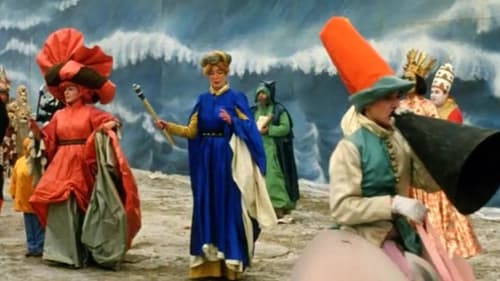
Woman (segment Portrait d'une Paresseuse)
Seven Women, Seven Sins (1986) represents a quintessential moment in film history. The women filmmakers invited to direct for the seven sins were amongst the world's most renown: Helke Sander (Gluttony), Bette Gordon (Greed), Maxi Cohen (Anger), Chantal Akerman (Sloth), Valie Export (Lust), Laurence Gavron (Envy), and Ulrike Ottinger (Pride). Each filmmaker had the liberty of choosing a sin to interpret as they wished. The final film reflected this diversity, including traditional narrative fiction, experimental video, a musical, a radical documentary, and was delivered in multiple formats from 16, super 16, video and 35mm.

Writer
Seven Women, Seven Sins (1986) represents a quintessential moment in film history. The women filmmakers invited to direct for the seven sins were amongst the world's most renown: Helke Sander (Gluttony), Bette Gordon (Greed), Maxi Cohen (Anger), Chantal Akerman (Sloth), Valie Export (Lust), Laurence Gavron (Envy), and Ulrike Ottinger (Pride). Each filmmaker had the liberty of choosing a sin to interpret as they wished. The final film reflected this diversity, including traditional narrative fiction, experimental video, a musical, a radical documentary, and was delivered in multiple formats from 16, super 16, video and 35mm.

Writer
Akerman's contribution to the anthology film Seven Women, Seven Sins (which also features shorts by the formidable Helke Sander, Bette Gordon, and Valie Export) is an amusing portrait of the director trying to overcome her own laziness (i.e., to get out of her bed by noon) in order to make her film about sloth, all while her partner Sonia Wieder-Atherton is hard at work. (The scenario produces Akerman's oft-quoted line, "In order to make cinema, one must get out of bed.")

Director
Akerman's contribution to the anthology film Seven Women, Seven Sins (which also features shorts by the formidable Helke Sander, Bette Gordon, and Valie Export) is an amusing portrait of the director trying to overcome her own laziness (i.e., to get out of her bed by noon) in order to make her film about sloth, all while her partner Sonia Wieder-Atherton is hard at work. (The scenario produces Akerman's oft-quoted line, "In order to make cinema, one must get out of bed.")

Akerman's contribution to the anthology film Seven Women, Seven Sins (which also features shorts by the formidable Helke Sander, Bette Gordon, and Valie Export) is an amusing portrait of the director trying to overcome her own laziness (i.e., to get out of her bed by noon) in order to make her film about sloth, all while her partner Sonia Wieder-Atherton is hard at work. (The scenario produces Akerman's oft-quoted line, "In order to make cinema, one must get out of bed.")

Director
Seven Women, Seven Sins (1986) represents a quintessential moment in film history. The women filmmakers invited to direct for the seven sins were amongst the world's most renown: Helke Sander (Gluttony), Bette Gordon (Greed), Maxi Cohen (Anger), Chantal Akerman (Sloth), Valie Export (Lust), Laurence Gavron (Envy), and Ulrike Ottinger (Pride). Each filmmaker had the liberty of choosing a sin to interpret as they wished. The final film reflected this diversity, including traditional narrative fiction, experimental video, a musical, a radical documentary, and was delivered in multiple formats from 16, super 16, video and 35mm.

Writer
Commissioned for the centenary of the famous French architect and designer Robert Mallet-Stevens and shot on the street that bears his name in Paris' 16th arrondissement, Rue Mallet-Stevens depicts a mysterious, nocturnal scene of romance (featuring Akerman and her partner, the cellist Sonia Wieder-Atherton) unfolding before and inside one of the street's modernist constructions.

Director
Commissioned for the centenary of the famous French architect and designer Robert Mallet-Stevens and shot on the street that bears his name in Paris' 16th arrondissement, Rue Mallet-Stevens depicts a mysterious, nocturnal scene of romance (featuring Akerman and her partner, the cellist Sonia Wieder-Atherton) unfolding before and inside one of the street's modernist constructions.

Commissioned for the centenary of the famous French architect and designer Robert Mallet-Stevens and shot on the street that bears his name in Paris' 16th arrondissement, Rue Mallet-Stevens depicts a mysterious, nocturnal scene of romance (featuring Akerman and her partner, the cellist Sonia Wieder-Atherton) unfolding before and inside one of the street's modernist constructions.

Director
A filmed adaptation of Rose Leiman Goldemberg’s play, based on Sylvia Plath’s intense correspondence with her mother Aurelia, from the time the poet was in university until her suicide. Delphine Seyrig and her niece Coralie Seyrig recite Sylvia and Aurelia’s letters to the audience directly.

Director
The hammer is the tool a sculptor uses to chip away at the block. It is the emblematic tool of French artist Jean-Luc Vilmouth. Akerman here instigates a game of musical chairs. The winner is then permitted to hurl the hammer out into the starry night.
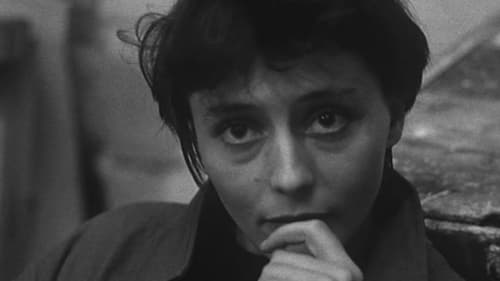
A young film director is turning a movie with his friend Christa. In the film-within-the-film there are two couples, one real, one imagined , and the film - told through five dreams - is as much the story of a film on-production, as the birth of a child.

Writer
Chantal Akerman was commissioned by Visions to make this short film for £20,000. It was first shown on 21 November 1984, on Channel 4. Akerman herself plays the role of a director visiting Hollywood to find financing from an uncle she hardly knows. Very little goes to plan… Also stars Aurore Clement and Colleen Camp.

Director
Chantal Akerman was commissioned by Visions to make this short film for £20,000. It was first shown on 21 November 1984, on Channel 4. Akerman herself plays the role of a director visiting Hollywood to find financing from an uncle she hardly knows. Very little goes to plan… Also stars Aurore Clement and Colleen Camp.

Chantal Akerman was commissioned by Visions to make this short film for £20,000. It was first shown on 21 November 1984, on Channel 4. Akerman herself plays the role of a director visiting Hollywood to find financing from an uncle she hardly knows. Very little goes to plan… Also stars Aurore Clement and Colleen Camp.

Director
A filmmaker’s self-portrait, asking hard questions of herself and of us. Invoking Aurore Clément as a kind of stand-in or proxy, a glamorous counterpart to Akerman who sports a drawn-on moustache. What is cinema for? Who is it for? If the Mosaic prohibition on making graven images includes film images, then where does that leave a Jewish filmmaker?

Self
A filmmaker’s self-portrait, asking hard questions of herself and of us. Invoking Aurore Clément as a kind of stand-in or proxy, a glamorous counterpart to Akerman who sports a drawn-on moustache. What is cinema for? Who is it for? If the Mosaic prohibition on making graven images includes film images, then where does that leave a Jewish filmmaker?
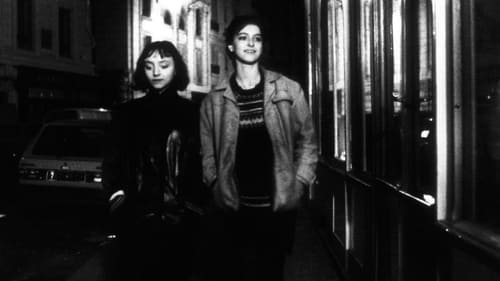
Writer
Two teenage girls from Belgium run away to Paris and have to learn how to survive.

Director
Two teenage girls from Belgium run away to Paris and have to learn how to survive.

Self
Documentary exploring why Belgian television doesn't invest more money in Belgian cinema as is the case in e.g. the netherlands.

Director
Film comprised of six vignettes each illustrating one aspect of life in the French capital, each set in a different area of the city.

Writer
A sensitivity to sounds coming from the activities of an unwelcome guest in the close quarters of an apartment is only one important component in this atmospheric, avant-garde drollery by Chantal Akerman. When the apartment owner comes home, her guest is settled in and at first, the slightly reclusive host decides simply to eat her breakfast in her room instead of having to face morning conversation with her guest. Sounds of the toilet flushing, the bath water running and splashing, footsteps pacing, and furniture moving invade the hostess' refuge in her bedroom like the frontrunners of an all-out offensive. She locks herself up for 28 days, life's detritus accumulating around her, just so she does not have to go out to face the nemesis that lurks beyond her door.

Director
A sensitivity to sounds coming from the activities of an unwelcome guest in the close quarters of an apartment is only one important component in this atmospheric, avant-garde drollery by Chantal Akerman. When the apartment owner comes home, her guest is settled in and at first, the slightly reclusive host decides simply to eat her breakfast in her room instead of having to face morning conversation with her guest. Sounds of the toilet flushing, the bath water running and splashing, footsteps pacing, and furniture moving invade the hostess' refuge in her bedroom like the frontrunners of an all-out offensive. She locks herself up for 28 days, life's detritus accumulating around her, just so she does not have to go out to face the nemesis that lurks beyond her door.

A sensitivity to sounds coming from the activities of an unwelcome guest in the close quarters of an apartment is only one important component in this atmospheric, avant-garde drollery by Chantal Akerman. When the apartment owner comes home, her guest is settled in and at first, the slightly reclusive host decides simply to eat her breakfast in her room instead of having to face morning conversation with her guest. Sounds of the toilet flushing, the bath water running and splashing, footsteps pacing, and furniture moving invade the hostess' refuge in her bedroom like the frontrunners of an all-out offensive. She locks herself up for 28 days, life's detritus accumulating around her, just so she does not have to go out to face the nemesis that lurks beyond her door.

Writer
All of the time and effort put forth to stage a musical is chronicled here in this bright and funny French outing. The story is set at a shopping mall where people audition for an upcoming show. Afterwards, they are seen going through the grueling routines of learning the music and rehearsing.

Director
All of the time and effort put forth to stage a musical is chronicled here in this bright and funny French outing. The story is set at a shopping mall where people audition for an upcoming show. Afterwards, they are seen going through the grueling routines of learning the music and rehearsing.
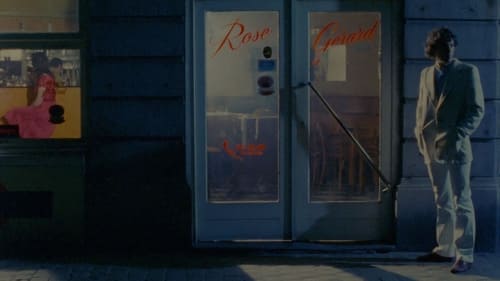
Screenplay
Following over two dozen different people in the almost wordless atmosphere of a dark night in a Brussels town, Akerman examines acceptance and rejection in the realm of romance.

Director
Following over two dozen different people in the almost wordless atmosphere of a dark night in a Brussels town, Akerman examines acceptance and rejection in the realm of romance.

Director
Several young men and women arrive one after the other at Hôtel des Acacias, full of hope, desire and vitality. In the bustle of this hotel, everyone is looking for love. Hôtel des Acacias was an exercise guided in 1982 by Chantal Akerman at Belgium’s INSAS audio-visual college.

Self
Chantal Akerman meets with elderly Jewish women in Paris, all of them survivors of the Shoah, and listens to their family stories. Between interviews, Akerman's mother Natalia speaks of her own family. Made for a French miniseries on grandmothers.

Director
Chantal Akerman meets with elderly Jewish women in Paris, all of them survivors of the Shoah, and listens to their family stories. Between interviews, Akerman's mother Natalia speaks of her own family. Made for a French miniseries on grandmothers.
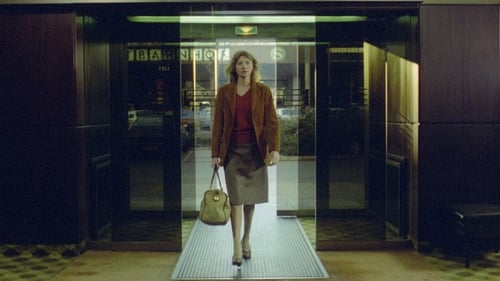
Writer
On a trip across Western Europe to promote her newest release, filmmaker Anna encounters several individuals—familiar and otherwise—and attends to their discontents.

Director
On a trip across Western Europe to promote her newest release, filmmaker Anna encounters several individuals—familiar and otherwise—and attends to their discontents.
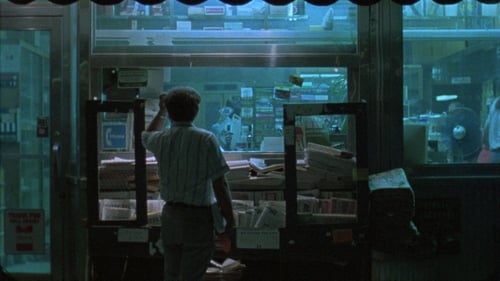
Writer
Belgian filmmaker Chantal Akerman lives in New York. Filmed images of the City accompany texts of Akerman's loving mother back home in Brussels. The City comes more and more to the front while the words of the mother, read by Akerman herself, gradually fade away.

Narrator (voice)
Belgian filmmaker Chantal Akerman lives in New York. Filmed images of the City accompany texts of Akerman's loving mother back home in Brussels. The City comes more and more to the front while the words of the mother, read by Akerman herself, gradually fade away.

Director
Belgian filmmaker Chantal Akerman lives in New York. Filmed images of the City accompany texts of Akerman's loving mother back home in Brussels. The City comes more and more to the front while the words of the mother, read by Akerman herself, gradually fade away.

Julie
A woman suffers a subdued psychological breakdown in the wake of a devastating breakup.

Producer
A woman suffers a subdued psychological breakdown in the wake of a devastating breakup.

Writer
A woman suffers a subdued psychological breakdown in the wake of a devastating breakup.

Director
A woman suffers a subdued psychological breakdown in the wake of a devastating breakup.
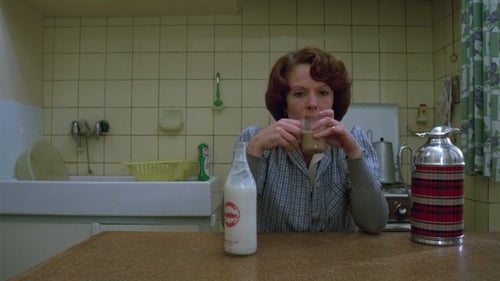
Neighbor (voice) (uncredited)
A lonely widowed housewife does her daily chores and takes care of her apartment where she lives with her teenage son, and turns the occasional trick to make ends meet. Slowly, her ritualized daily routines begin to fall apart.

Writer
A lonely widowed housewife does her daily chores and takes care of her apartment where she lives with her teenage son, and turns the occasional trick to make ends meet. Slowly, her ritualized daily routines begin to fall apart.

Director
A lonely widowed housewife does her daily chores and takes care of her apartment where she lives with her teenage son, and turns the occasional trick to make ends meet. Slowly, her ritualized daily routines begin to fall apart.
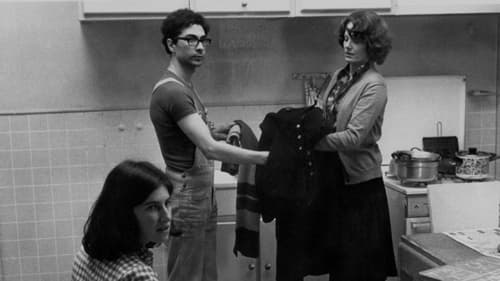
Self
During the filming of "Jeanne Dielman" Sami Frey recorded what was happening on the set. A film about a film in the making.

Editor
During the filming of "Jeanne Dielman" Sami Frey recorded what was happening on the set. A film about a film in the making.
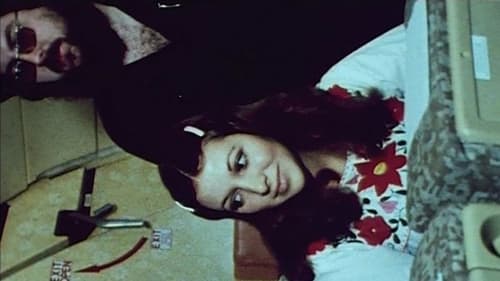
Described (rather cheekily) by director Michael Snow as a musical comedy, this deft probing of sound/image relationships is one of his wittiest, most entertaining and philosophically stimulating films. In his words, the film “derives its form and the nature of its possible effects from its being built from the inside, as it were, with the actual units of such a film, i.e. the frame and the recorded syllable. Thus its ‘dramatic’ element derives not only from a representation of what may involve us generally in life but from considerations of the nature of recorded speech in relation to moving light-images of people.’”

Producer
Hotel Monterey is a cheap hotel in New York reserved for the outcasts of American society. Chantal Akerman invites viewers to visit this unusual place as well as the people who live there, from the reception up to the last story.

Writer
Hotel Monterey is a cheap hotel in New York reserved for the outcasts of American society. Chantal Akerman invites viewers to visit this unusual place as well as the people who live there, from the reception up to the last story.

Director
Hotel Monterey is a cheap hotel in New York reserved for the outcasts of American society. Chantal Akerman invites viewers to visit this unusual place as well as the people who live there, from the reception up to the last story.

Writer
An unfinished Chantal Akerman film about the troubled youths and drug addicts going through rehabilitation in Yonkers, New York.

Director
An unfinished Chantal Akerman film about the troubled youths and drug addicts going through rehabilitation in Yonkers, New York.

Writer
On a wet August 15th, with time on hold, Chris, a young Finnish woman recently arrived in Paris and taken in by one of Chantal Akerman's friends, confides herself. On the one hand, her long, non-stop monologue of trivialities pours a non-expressed angst. On the other hand, her portrait in fixed shots captures her gestures. - Doclisboa

Director
On a wet August 15th, with time on hold, Chris, a young Finnish woman recently arrived in Paris and taken in by one of Chantal Akerman's friends, confides herself. On the one hand, her long, non-stop monologue of trivialities pours a non-expressed angst. On the other hand, her portrait in fixed shots captures her gestures. - Doclisboa

Writer
Furniture and clutter of one small apartment room become the subject of a moving still life—with Akerman herself staring back. This breakthrough formal experiment is Akerman's first film made in New York.

Furniture and clutter of one small apartment room become the subject of a moving still life—with Akerman herself staring back. This breakthrough formal experiment is Akerman's first film made in New York.

Director
Furniture and clutter of one small apartment room become the subject of a moving still life—with Akerman herself staring back. This breakthrough formal experiment is Akerman's first film made in New York.

Elle-même
A young mother, alone with her daughter, confides in a friend who happens to be the director herself. Chantal Akerman, although she sympathizes with the mother, does not say a word.

Writer
A young mother, alone with her daughter, confides in a friend who happens to be the director herself. Chantal Akerman, although she sympathizes with the mother, does not say a word.

Director
A young mother, alone with her daughter, confides in a friend who happens to be the director herself. Chantal Akerman, although she sympathizes with the mother, does not say a word.
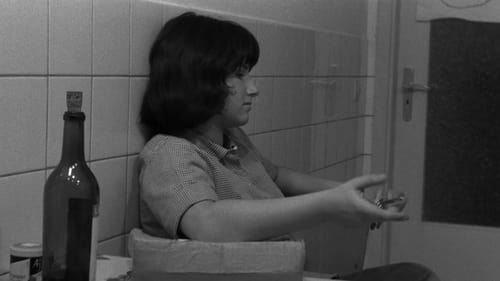
The girl
A young girl shuts herself away in her apartment and goes about her business in a strange way, as she wastes the night in the kitchen – humming all along.

Director
A young girl shuts herself away in her apartment and goes about her business in a strange way, as she wastes the night in the kitchen – humming all along.

Director
A 3rd short super 8 film made by Chantal Akerman in Knokke to be used to be accepted at INSAS starring her friends her mother and herself.

Director
A 4rd short super 8 film made by Chantal Akerman with her friends in Brussels, shot in front of the former Hotel van Cleve-Ravenstein coincidentally the place where now CINEMATEK and the archives of the Chantel Akerman Fondation are residing.

A 3rd short super 8 film made by Chantal Akerman in Knokke to be used to be accepted at INSAS starring her friends her mother and herself.

Director
A 2nd short super 8 film made by Chantal Akerman in Knokke to be used to be accepted at INSAS.

Director
The first film by Chantal Akerman, a short silent 8mm film shot during the Brussels summer Midi Fair, that was one of four short films she made as a short of entrance exam at INSAS were she studied for just a couple of months.

herself
